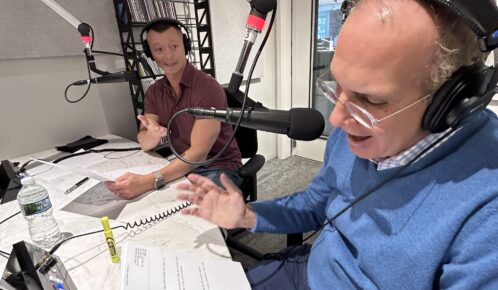A recently filed Ozempic lawsuit claims the popular diabetes medication puts patients at risk for serious, long-term adverse health effects. While some over-the-counter medications produce minor, unnoticeable side effects, others may result in life-changing conditions.
Table of Contents

The most recent patient to file a lawsuit against the drugmakers of Ozempic claims that the medication caused her to develop a painful gastrointestinal disorder. As a result of taking the popular medicine for weight loss and diabetes, the woman alleges that she suffered a life-threatening bowel injury. Now, she will have diarrhea for the rest of her life and experience pain. This is not an isolated incident among users of Ozempic.
What Is Ozempic?
Ozempic is an injectable medication developed for the treatment of type 2 diabetes. Taken once per week, this prescription-only drug is used with exercise and diet to improve blood sugar levels in diabetic adults. It also helps reduce the risk of major cardiovascular events in those with type 2 diabetes and known heart disease. Ozempic is a class of drug known as a GLP-1 receptor agonist.
How Do GLP-1 Receptor Agonist Drugs Work?
After you eat, your blood sugar rises. GLP-1 receptor agonist drugs mimic the glucagon-like peptide 1 hormone, so the medication stimulates the body to make more insulin. The increased insulin lowers the body’s blood sugar to a safe level.
What Are the Side Effects of Ozempic Use?
Like other medications available to consumers, Ozempic lists several side effects that patients may experience with use. The drug manufacturer lists constipation, stomach pain, diarrhea, nausea, and vomiting as common side effects. More serious symptoms that the use of the medication may cause include:
- Kidney problems
- Gallbladder problems
- Low blood sugar
- Pancreatitis
- Changes in vision
Ozempic may also cause serious allergic reactions, such as swelling of the face, lips, throat, or tongue, fainting or dizziness, difficulty swallowing or breathing, or a rapid heartbeat. If you experience these symptoms, the manufacturer directs you to seek immediate medical treatment.
Why Is There an Ozempic Lawsuit?
In a recent lawsuit, the plaintiff claims that she was not adequately warned of gastroparesis as a risk of taking Ozempic. She claims she was not made aware of the danger of taking the medication.
Reports did not indicate how much the woman was seeking in damages. However, Illinois law does not cap compensation in product liability cases. Therefore, the plaintiff may recover the maximum damages for her losses.
In recent months, more than a dozen patients have filed similar lawsuits against the drug manufacturer Novo Nordisk. They allege that they developed the painful condition after using the popular diabetes and weight loss medication, Ozempic. The lawsuits also claim Ozempic’s sister drug, Wegovy, causes gastroparesis. These Ozempic lawsuits allege the drugmaker does not provide adequate warning on medication labels or to prescribing physicians about the risk of developing gastroparesis.
What Is Gastroparesis?
Gastroparesis is a gastrointestinal disorder that affects the movement of food from the stomach to the small intestine. Also known as delayed gastric emptying, those with this condition experience slowed or stopped movement of food, despite the absence of blockages. Consequently, the stomach cannot empty properly.
Those living with gastroparesis may experience abdominal bloating and pain, nausea and vomiting, acid reflux, changes in blood sugar levels, weight loss, and malnutrition.
Who Is Eligible to Join an Ozempic Lawsuit?
Ozempic patients who suffered adverse reactions may file civil lawsuits against the drug manufacturer, with or without the help of a personal injury lawyer.
As more cases are filed against the drugmaker, the case may transition to a class action lawsuit. A class action lawsuit is a civil action brought on behalf of a group who suffered common injuries because of the conduct of a defendant. The damages are divided between the plaintiffs based on factors such as their involvement in the case, the number of lead plaintiffs, their injuries, and the total number of participating class members.
Are Ozempic Lawsuits Product Liability Claims?
Ozempic lawsuits qualify as product liability claims due to the dangers the drug presents when used as intended. Generally, you may file a product liability lawsuit based on one of three types of product liability claims – manufacturing defects, design defects, or failure to provide adequate warnings.
Despite using some drugs as intended, they may still cause serious illness or harm. Design defect cases involving medications are relatively rare because of the U.S. Food and Drug Administration’s rigorous requirements. However, sometimes drugs become available that have unforeseen dangerous defects in their designs or formulas.
In some cases, the design of a drug is safe, but mistakes, irregularities, or other issues during the manufacturing process may affect the safety of the medication. If you suffer adverse health effects because of such defects, you may have a dangerous drug case.
Certain medication side effects are considered acceptable, as long as the manufacturers make consumers aware of these possible outcomes. As is the case in the recent Ozempic lawsuit, you may choose to file a lawsuit if you suffered harm as a result of misleading labels or labels that do not properly warn of a drug’s dangers.
Proving Product Liability
To recover compensation for injuries caused by a dangerous drug, you must prove the four elements of a product liability claim. First, provide evidence that you were using the medication as intended. Then demonstrate that the product was defective. To successfully recover compensation, you must also provide evidence that you were injured, and you suffered losses because of that injury, and that your injury was the direct result of the dangerous drug.
What Damages Can You Recover in an Illinois Dangerous Drug Case?
Like the plaintiff in the recently filed Ozempic lawsuit, if you suffered adverse health effects due to a medication, you may pursue compensation. Through such a lawsuit, you may seek to recover damages for your economic and non-economic losses.
Economic losses include those tangible costs resulting from the drug’s side effects. For example, personal injury cases help with medical bills, lost wages, and lost future earning potential.
Non-economic losses include the costs less-easily quantified. For instance, you may pursue damages for the pain and suffering you experienced as a result of your condition.
While some risks are considered acceptable, those decisions are best made between patients and their doctors. To make such decisions, however, they must be aware of the possible side effects of taking a medication. If you suffered injuries such as those experienced by the plaintiff in the recent Ozempic lawsuit, consider consulting with an Illinois product liability attorney.



